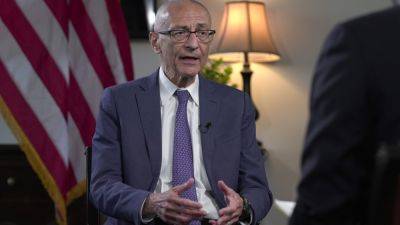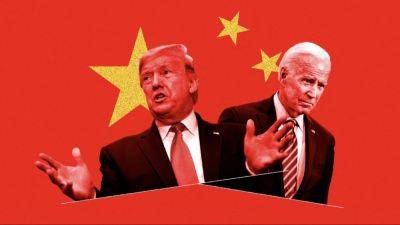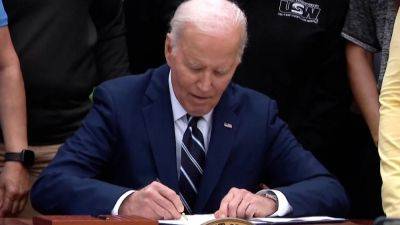Biden's EV tariffs may not be enough to stave off the threat of Chinese vehicles in the U.S.
DETROIT — President Joe Biden's plan to quadruple tariffs on China-made electric vehicles is unlikely to stave off the threat of more Chinese cars on the auto sales market in the U.S.
The 100% tariff announced Tuesday, up from a current import tax of about 25%, covers EVs imported from China but could still leave room for the often-cheap Chinese models to undercut domestic prices and leaves loopholes for imports made by Chinese automakers in other countries, like neighboring Mexico. It also does nothing to address current or future gas-powered vehicles imported from the Communist country to the U.S.
Automotive and trade experts say the increased tariffs are a near-term protectionism act that may delay but won't stop Chinese automakers from coming to the U.S. with EVs.
"They're going to be here. It's inevitable. It's just a matter of time," said Dan Hearsch, Americas co-leader of automotive and industrial practice at consulting firm AlixPartners. "Western automakers, Western suppliers really ought to be upping their game and preparing to take this on or play with them. It's one or the other."
The EV tariffs, including other increases regarding battery materials, were among new tariff rates on $18 billion worth of Chinese imports.
For decades, Chinese auto companies have said they will begin selling vehicles in the U.S. under their own brands, but none have succeeded.
The quality of Chinese automakers' vehicles has gotten significantly better in recent years, as Beijing has helped by subsidizing their operations to grow domestic production. The increase in domestic automakers has led to a rapid deterioration of market share in the country for global automakers such as General Motors.
Global players have made more inroads in the






